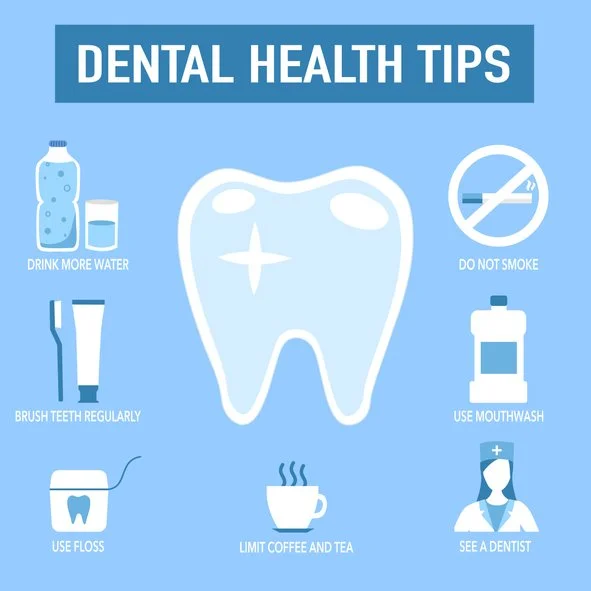You Don’t Want to Bite Your Tongue, But You May Want To Scrape It
By Joy Stephenson-Laws, Holistic Coach, J.D., Founder
America is facing more than just an obesity crisis; we are also in the midst of a severe oral health crisis, intricately linked to health disparities affecting underserved communities. Recognizing and addressing this issue is essential to improving overall public health.
Understanding the Scope of the Crisis
According to the Centers for Disease Control and Prevention (CDC, 2024), approximately 57 million Americans live in areas identified as dental health professional shortage zones, with about 67% located in rural communities. These significant geographic disparities restrict access to critical dental care, severely impacting the oral health of many Americans.
Oral Health: The Gateway to Overall Wellness
Healthcare experts often describe the mouth as a "gateway" to the body's overall health, emphasizing the importance of oral hygiene beyond just a bright smile. Advanced gum disease (periodontitis) has been scientifically linked to numerous serious health conditions, including:
Cancer
Dementia
Diabetes
Arthritis
Heart disease
Research consistently highlights the systemic impact poor oral hygiene has, underscoring its role in broader health management and disease prevention (American Dental Association, 2023).
Voices from the Dental Community
Brett Kessler, DDS, president of the American Dental Association, recently emphasized the urgency of the oral health crisis, writing:
“Imagine not being able to chew food, speak clearly or smile because of pain, infection or missing teeth. The impact on quality of life is undeniable. Sadly, tens of millions of Americans are suffering right now. Some neglect oral health, while others face significant barriers to accessing dental care, with many unable to afford necessary treatments or lacking insurance coverage that includes dental services.”
Dr. Kessler highlights systemic challenges such as insurance limitations and healthcare access barriers, stressing the profound impact these issues have on daily life and overall wellness.
Why Tongue Scraping?
Tongue scraping, especially using copper scrapers known for their antimicrobial properties, can drastically enhance oral hygiene by effectively reducing bacterial buildup. Approximately 20 billion bacteria reside in the human mouth, most concentrated on the tongue.
Proven Benefits of Tongue Scraping
Fresher Breath: According to research from the National Institutes of Health (NIH), about 85% of halitosis (bad breath) originates from mouth bacteria, with half specifically linked to tongue residues. Regular tongue scraping significantly mitigates these odors.
Improved Taste and Digestion: By removing bacteria and dead cells, tongue scraping enhances taste bud function and stimulates saliva production, critical for effective digestion of starches through the enzyme amylase.
Reduced Risk of Gum Disease: Eliminating excess bacteria through tongue scraping helps prevent gingivitis and periodontitis, subsequently reducing risks of systemic diseases like dementia and heart disease (American Dental Association, 2023).
Recommended Oral Care Routine
Adopting a comprehensive oral care routine optimizes oral health and overall wellness. Dental professionals recommend the following order:
Mouthwash First: Acts as a preliminary rinse, reducing initial bacterial load.
Flossing: Removes plaque and debris between teeth.
Brushing: Cleans teeth surfaces, further removing bacteria and protecting with fluoride.
Tongue Scraping: Completes the routine by thoroughly cleaning the tongue.
Following this structured routine promotes optimal oral cleanliness, protects dental health, and maintains a balanced oral microbiome.
Taking Action for Better Oral Health
Addressing the oral health crisis demands both systemic improvements and personal responsibility. Adopting proactive oral hygiene practices like tongue scraping, alongside brushing, flossing, and mouthwash, contributes significantly to overall health and wellness.
References:
Centers for Disease Control and Prevention (CDC), Oral Health Surveillance Report, 2024.
American Dental Association, "Oral Health in America: Advances and Challenges," 2023.
National Institutes of Health, "Management of Halitosis Through Oral Hygiene," 2022.
Enjoy your healthy life!



